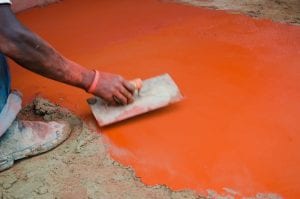
Agriculture
February 29, 2024
EarthEnable Floors
Read SolutionImplemented by
EarthEnable
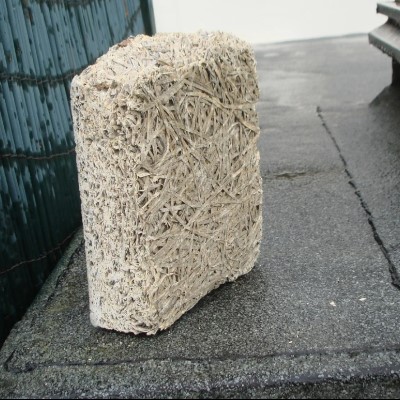
Updated on March 14, 2024
·Created on December 6, 2022
Stramit board panels consist of compressed straw, extruded between two surface layers of liner-board.
Stramit panels consist of compressed straw, extruded between two surface layers of liner-board. The ends and sides of the panels are sealed to protect the straw core. The traditional thickness is 58 mm, but 38 mm, 50 mm and 76 mm also being used. The thicker sizes often contain service holes, which allow electrical conduit to be pushed through the core, embedding cables within a single panel.
Target SDGs
SDG 11: Sustainable Cities and Communities
SDG 12: Responsible Consumption and Production
Market Suggested Retail Price
$0.18
Target Users (Target Impact Group)
Household, Small and Medium-sized Enterprises
Distributors / Implementing Organizations
Straw Resource Limited and Roofers online
Regions
Worldwide
Manufacturing/Building Method
Strawboard's main component is straw. It is the same straw as the one used as roughage and bedding for cattle including any proportions of dry (typically less than 15 percent moist, by weight) stalks of the cereals (such as rice, wheat, rye, oats and barley), grasses, sugar cane bagasse. The straw is cleaned of foreign matter such as stones and clods of soil, as well as of fine particles and dust, and fed at a uniform rate and well-distributed manner into the ram of an extruder, where it is shaped. Compressed and baked, at a temperature of about 350- 400°F, continuously emerging as a billet of indeterminate length and a uniform thickness and width. 50, 75, and 100 mm are desirable thicknesses, and 1200 mm is a standard width. The emerging board is typically golden in color.
Intellectural Property Type
Patent
User Provision Model
Users can obtain Stramit boards by contacting the manufacturer's distribution office.
Distributions to Date Status
Unknown
Unit dimensions (cm)
roof panel 3.658 m, wall cap 8.534 m
Primary materials
suitable straw, of the same sort which is traditionally used as roughage for cattle and stalks of cereals
Complimentary materials
Unknown
Fire Resistance (hr)
Stramit panels do not harbour enough oxygen to support combustion. Flame spread Class O
Thermal Insulation Capacity
Standard 58mm panels have a thermal conductivity of not more than K=0.102 W/mk and a thermal resistance of R=0.5882 m2/kW
Compressive Strength (MPa)
Standard Stramit panels will accept 1100 kgs loading without deformation
Suitable Climates
All
Design Specifications
Stramit StrawBoard is manufactured from straw such as wheat or rice by a patented process of heat and pressure that fuses the straw using its internal resins, making it a completely natural product. Stramit is produced by continuous extrusion, has a tough, bonded external surface of recycled paper and is typically 35mm to 60mm thick.
Technical Support
Provided by the manufacturer
Replacement Components
Unknown
Lifecycle
Unknown
Manufacturer Specified Performance Parameters
Strength: Standard Stramit panels will accept 1100 kgs loading without deformation. Panels can be used for self-supporting partitions and external walls up to 3.5 m high without structural frames. They have ample strength for use as roof decking to support workmen. They are resistant to termites and other vermin.
Fire resistant: Stramit panels do not harbour enough oxygen to support combustion. Unlike other composite building panels, Stramit contains no added resins, alcohol, turps or other chemicals which produce flammable vapors. Skim-plastered the panels are UK certified for half an hour. Flame spread Class O.
Thermal insulation: Because of its composition Stramit panels have excellent thermal insulation properties in comparison with other structural walling materials. Standard 58mm panels have a thermal conductivity of not more than K=0.102 W/mk and a thermal resistance of R=0.5882 m2/kW.
Sound insulation: The thickness and density of Stramit panels reduce noise level from one side to the other by an average of 35 db.
Density: The standard panel is produced to a density of 380 kg/m3. Stramit panels can be produced to a density varying from 150kg/m3 for heat insulation to 600kg/m3 for sound insulation.
Electrical conduits: Panels are normally produced with 22 mm diameter service holes at 300 mm centres to accept electrical wiring. Board can also be produced without electrical conduits. To fit electrical power outlets, a high speed router should be used for recessing and grooving.
Resistance to damage: Unlike gypsum board, Stramit panels can be handled like timber and be cut with a hand-held power saw or a hand saw with wide teeth setting. They are not easily damaged or broken in transit and can also be glued, nailed or drilled and will accept render, plaster, paint and wall paper.
Space saving: Compared with partitioning systems using brickwork, blockwork, studwork and gypsum board, Stramit panels can save considerable amounts of space.
Finish: Panels can be produced with both square or tapered edges. Standard panels are produced with recycled paper surface but specialist finishes can also be provided.
Vetted Performance Status
According to the manufacturer, the product meets the British Standard (BS 4046:1991) and is in Compliance with ISO 4046-4:2016 - Paper, board, pulps and related terms
Safety
Unconsolidated natural straw is notoriously combustible and a fire hazard, Stramit chars when subjected to torching, but does not support combustion and generally self-extinguishes upon withdrawal of the torch. However, the paper covering can be combustible and a means for spreading flame, so to meet noncombustible construction requirements, it may be necessary to use covering paper which has been treated with a suitable flame retardant or the like.
Complementary Technical Systems
None
Academic Research and References
Gowripalan, S, C Healy, J McLanders, and Y Arguedas. “Efficient Design of Stramit Exacta Purlins Using the EX-Facta Software.” CPAPER. 2008. Reprint, [Melbourne, Australia], 2008. https://search.informit.org/doi/10.3316/informit.492835810802421
“Products”, Straw Resource, accessed on March 14, 2024, http://www.strawresource.com/products/
“Stramit StrawBoard”, Solaripedia, accessed on March 14, 2024, https://www.solaripedia.com/713/101/material.html
Compliance with regulations
According to the manufacturer, the product meets the British Standard (BS 4046:1991) and is in Compliance with ISO 4046-4:2016 - Paper, board, pulps and related terms
Evaluation methods
Unknown
Other Information
Strawboard is not itself waterproof and must be suitably protected if it is to endure a moist environment
ISO 4046-4:2016 – Paper, board, pulps and related terms
“Contacts” Straw Resource, accessed on March 14, 2024, http://www.strawresource.com/contacts/

Agriculture
February 29, 2024
Implemented by
EarthEnable
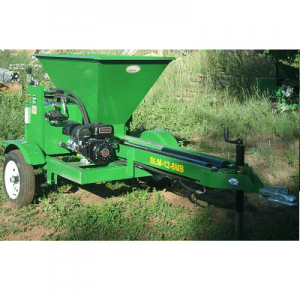
Agriculture
February 29, 2024
Implemented by
EarthTek Inc.
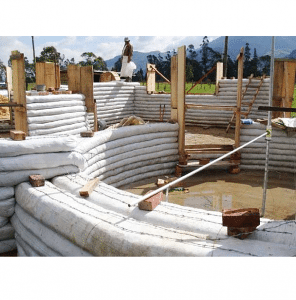
Agriculture
February 29, 2024
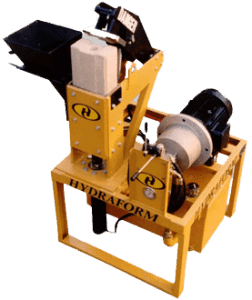
Agriculture
February 29, 2024
Implemented by
Hydraform
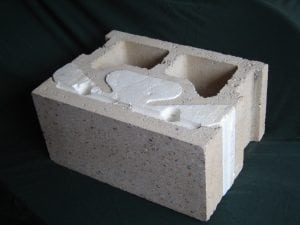
Agriculture
March 7, 2024
Implemented by
Francis Kennedy
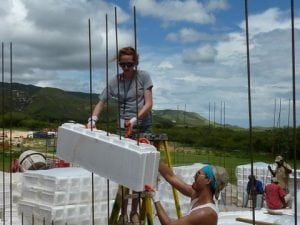
Agriculture
March 4, 2024
Implemented by
Lazarian World Homes
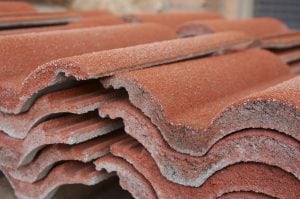
Agriculture
March 6, 2024

Agriculture
June 23, 2024
Implemented by
Carpolo (Mohammad Nabaa & Ralph Khairallah)
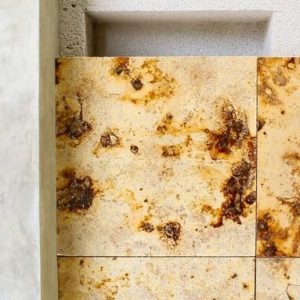
Agriculture
March 13, 2024
Implemented by
Mycotech Lab (MYCL)
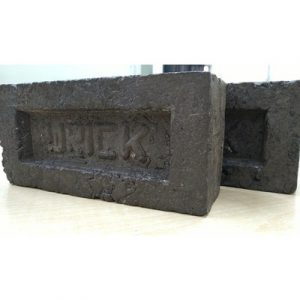
Agriculture
March 13, 2024
Implemented by
Angirus Ind Pvt. Ltd.
Have thoughts on how we can improve?
Give Us Feedback